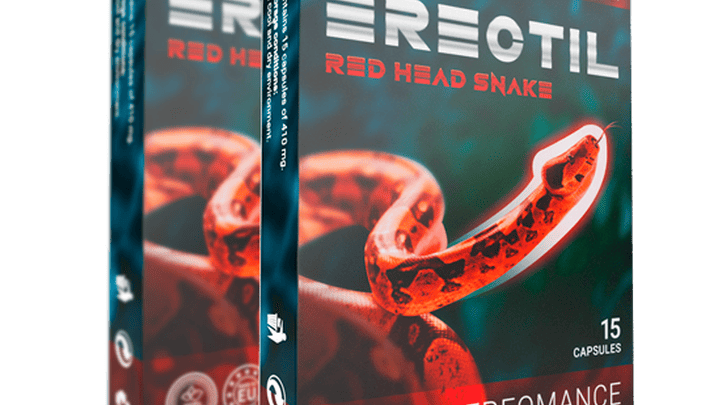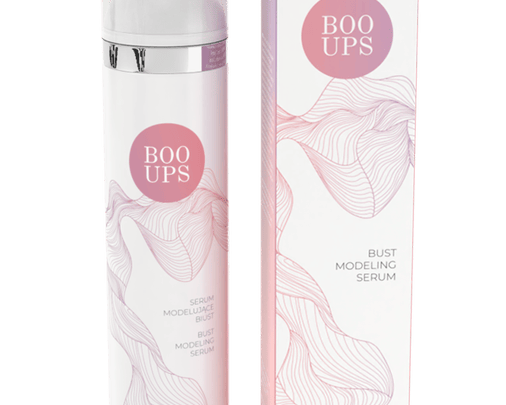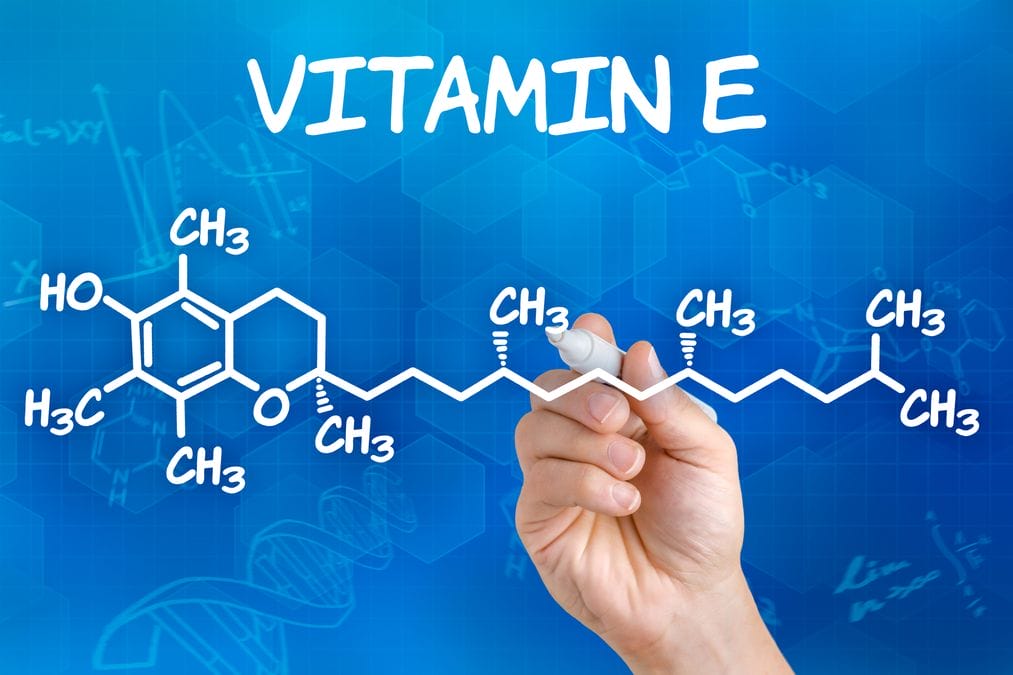
Vitamin E – medicinal properties beneficial to our health
Among the many vitamins that we have described on this page and that we need to provide to the body every day in carefully selected doses, one of the most important is vitamin E. It is valued for its many health-promoting properties, not without reason it is also called “youth vitamin” or “fertility vitamin”. It can be found in many foods that we eat every day, it can also be supplied with the help of dietary supplements, and it can also be found in many cosmetics used for daily body care.
Contents
What is vitamin E and who discovered it
Under the generally used term of vitamin E we understand a whole group of organic chemical compounds, mainly tocopherols. Vitamin E is a fat-soluble vitamin, just like vitamin A and vitamin D. Research on it began as early as the 1920s with experiments on rat reproduction. Two American scientists, Dr. H. Evans and Dr. K. Bishop, made the discovery that wheat grains increase fertility in these animals, which led them to another vitamin, named E.
What are the richest natural sources of vitamin E
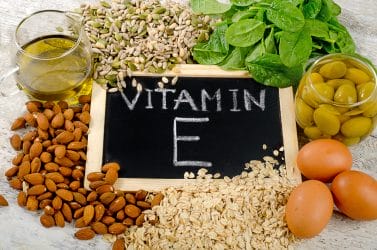
As we have already mentioned, the best, although not the only way to supplement the resulting deficiencies of vitamin E is a properly composed diet, rich in ingredients having it. This is a method recommended by doctors and professional nutritionists, which also brings other benefits, primarily reducing the risk of overweight and obesity and cardiovascular diseases.
When it comes to food products that have a large dose of vitamin E in their composition, our daily menu must necessarily include:
- vegetable oils, pressed from rapeseed, walnuts, sunflower seeds and soybeans, among others;
- Olive oil, preferably extra virgin extra virgin of course;
- nuts, walnuts and hazelnuts, which are also a source of valuable minerals, phosphorus, calcium, magnesium and zinc;
- almonds;
- Green vegetables such as spinach, lettuce, broccoli, Brussels sprouts, asparagus, parsley, chives
- tomatoes and peppers, red and yellow, which also complement the deficiencies of vitamin C, B vitamins, including folic acid and minerals, including anemia-fighting iron;
- other vegetables full of not only vitamin E but also other valuable nutrients, such as garlic, carrots, white cabbage, kale;
- fruits, raspberries, blueberries, peaches, apricots, blackcurrants, blackberries, pumpkin or avocado;
- Sea fish, tuna, salmon, pollock, herring and mackerel.
Vitamin E – recommended daily dosage
Just like any other vitamin, E should be dosed appropriately, preferably according to your doctor’s recommendations. The recommended daily standards, which should not be exceeded, are:
- for adults – 15 mg;
- pregnant women – 15 mg;
- breastfeeding women – 19 mg;
- adolescents 14 to 18 years of age – 15 mg;
- children from 9 to 13 years – 11 mg;
- children 4 to 8 years – 7 mg;
- children 1 to 7 years – 6 mg;
- infants – 4 to 5 mg.
Vitamin E – the effects of its deficiency and excess
Not exceeding the recommended by specialists daily doses of vitamin E is important because both its deficiency and excess can have serious consequences for our body. So it is better to avoid them, at the same time it is worth knowing what to expect if we exaggerate the amount of this important nutrient or there will be too little of it in the body.
Vitamin E deficiency
If we take care of a proper balance of our diet and the presence in it of the products mentioned above, deficiencies of this vitamin occur very rarely. They can be supplemented with a supplement having it in its composition, however, when we neglect this issue, the following symptoms of vitamin E deficiency may occur:
- a feeling of constant fatigue;
- a noticeable decrease in muscle strength, causing problems with movement;
- neurological disorders;
- nervousness, irritability, and mood swings;
- aweakening of the body’s natural immune system, which can be strengthened with the HEY!GUMMY preparation with vitamin E, a source of which is ginger;
- problems with concentration;
- worsening of vision, which can be prevented by supplements with vitamin E in their composition, such as Opti Lutein recommended by specialists;
- disorders of the nervous system;
- Eczema, a tendency to skin irritation, acne and slower wound healing;
- keratosis of the epidermis and accelerated skin aging.
Excessive vitamin E
This condition is encountered more often, it is only necessary to add to the dose of vitamin E supplied with food additional, taken in the form of supplements. In this case, our body will react with such symptoms as:
- muscle weakness;
- a feeling of fatigue;
- deterioration of vision;
- intestinal disorders, diarrhea or constipation;
- severe headaches.
Vitamin E – the most important medicinal properties
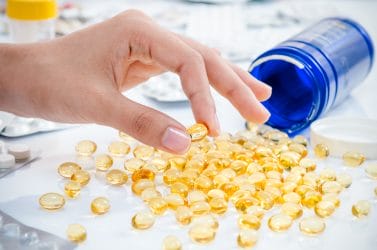
We already know which products contain the largest amounts of vitamin E, what is the recommended dosage and what its deficiency or excess leads to. So it is time to learn more about its medicinal properties and positive effects on the human body. Of those worth highlighting, the most important are:
Antioxidant activity
One of the biggest threats to our health are free radicals, or reactive oxygen species, called ROS for short. These oxygen atoms, lacking one electron, constantly attack other atoms in an attempt to get that missing electron from them. In doing so, they damage healthy cells, and their increasing numbers lead the body to a state of oxidative stress and:
- an increased risk of cancer;
- neurodegenerative diseases such as Parkinson or Alzheimer;
- stroke;
- kidney failure;
- increased blood glucose levels, a cause of type I and type II diabetes.
The destructive action of free radicals is effectively stopped by vitamin E, deservedly considered the most powerful antioxidant. It is best at removing them, while protecting the body from the effects of oxidative stress.
Prevention of cardiovascular disease
This is another benefit of vitamin E that cannot be ignored, which is why its supplementation is recommended by cardiologists. It is a factor conditioning proper blood clotting, prevents the dangerous phenomenon of aggregation, i.e. the conglomeration of platelets. It also protects against atherosclerosis by preventing excessive accumulation of the so called atherosclerotic plaques.
Another advantage, important from the point of view of heart disease prevention, is the reduction of the level of “bad” cholesterol LDL in blood and strengthening the weakened walls of blood vessels. Proper, unobstructed blood flow is also important in the prevention of vs. Varicose veinsVitamin E has proven its effectiveness here, as one of the active substances of the anti-varicose cream VaricOff.
Improved fertility and male libido
Vitamin E bears the well-deserved name “fertility vitamin”, being responsible for the work of male and female sexual organs. It is safe to say that a deficiency of this vitamin causes difficulties in getting pregnant, so it is especially recommended for women who want to have a child. They must also take it during pregnancy, because it prevents vision defects in the child and determines its normal growth and body weight. It also reduces the risk of premature miscarriage, fetal demise and rupture of membranes.
In case of men, vitamin E preventssperm degeneration caused by excessive secretion of gonadotropic hormone. This is why it is used as an important ingredient in many dietary supplements beneficial for male virility, such as Testolan or Expansil Cream.
Prostate cancer prevention
One of the diseases more common in middle-aged men is prostate hypertrophy, also called prostate gland, manifested by frequent urination, a feeling of constant pressure on the bladder or urinary incontinence. Ignoring these symptoms can lead to the development of prostate cancer, and recent studies by scientists from Australia and the United States have shown that this risk is reduced by regular intake of vitamin E.
Healthy and firm skin
These are two more health and also cosmetic areas where vitamin E is used. Its remarkable properties fully reflect the name of the “vitamin of youth”, which our skin needs to maintain health and attractive appearance until old age. Due to the fact that vitamin E is a fat-soluble compound, it can easily take care of not only the epidermis, but also the deep layers of the skin.
It is thus perfectly protected against the destructive effects of free radicals from the inside, and from the outside against other harmful factors such as atmospheric, UV radiation and cigarette smoke. Adequate doses of vitamin E, such as those contained in the Revamin Stretch Mark cream, allow to remove disfiguring wrinkles and stretch marks. Vitamin E also stops the natural aging process of the skin, moisturizes it to the deepest layers, soothes irritation, prevents acne, accelerates wound healing and gives it softness and restores elasticity.
Strong and thick hair
Vitamin E should also be used by people complaining about weak, thin, brittle, lackluster hair, prone to excessive and accelerated hair loss. Properly dosed vitamin E has a beneficial effect on the scalp, so it forms the basis for strong and thick hair growth, improving nutrient absorption by hair follicles.
It is therefore worthwhile to regularly provide it, among others with the dietary supplement Hair Care Panda, in the form of vitamin gel in the shape of teddy bears. Equally effective are the Jelly Bear Hair jellies, also supporting hair with the help of vitamin A, vitamin B9, or biotin, vitamin B12, cobalamin and numerous minerals, especially zinc, selenium and copper.
Sources:
- https://www.healthline.com/health/all-about-vitamin-e
- https://www.healthline.com/nutrition/vitamin-e-overdose
- https://www.healthline.com/health/food-nutrition/vitamin-e-deficiency#what-you-can-do
- https://www.healthline.com/health/vitamin-e-for-skin


